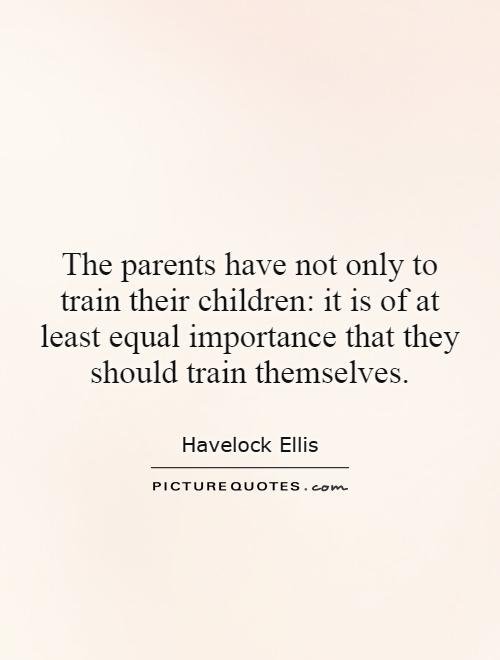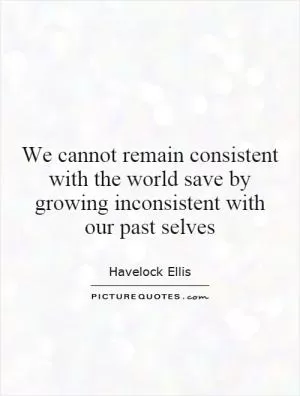The parents have not only to train their children: it is of at least equal importance that they should train themselves

The parents have not only to train their children: it is of at least equal importance that they should train themselves
Havelock Ellis, a renowned psychologist and social reformer, emphasized the importance of parents not only training their children but also training themselves. He believed that parents play a crucial role in shaping the development and well-being of their children, and that their own personal growth and self-improvement are essential in this process.Ellis understood that parenting is a challenging and demanding task that requires patience, understanding, and self-awareness. He believed that parents need to constantly work on themselves in order to be effective role models for their children. This involves examining their own beliefs, attitudes, and behaviors, and making necessary changes to create a positive and nurturing environment for their children.
One of the key aspects of self-training for parents, according to Ellis, is developing emotional intelligence. This involves being able to regulate one's own emotions, empathize with others, and communicate effectively. By cultivating emotional intelligence, parents can better understand their children's needs and feelings, and respond to them in a supportive and compassionate manner.
In addition to emotional intelligence, Ellis also emphasized the importance of self-reflection and self-awareness. Parents need to be able to reflect on their own parenting practices, identify areas for improvement, and make changes accordingly. This requires a willingness to be open-minded, flexible, and willing to learn from their mistakes.
Furthermore, Ellis believed that parents need to prioritize their own well-being in order to be effective caregivers. This includes taking care of their physical, mental, and emotional health, as well as seeking support and guidance when needed. By prioritizing self-care, parents can better cope with the challenges of parenting and be more present and engaged with their children.












 Friendship Quotes
Friendship Quotes Love Quotes
Love Quotes Life Quotes
Life Quotes Funny Quotes
Funny Quotes Motivational Quotes
Motivational Quotes Inspirational Quotes
Inspirational Quotes